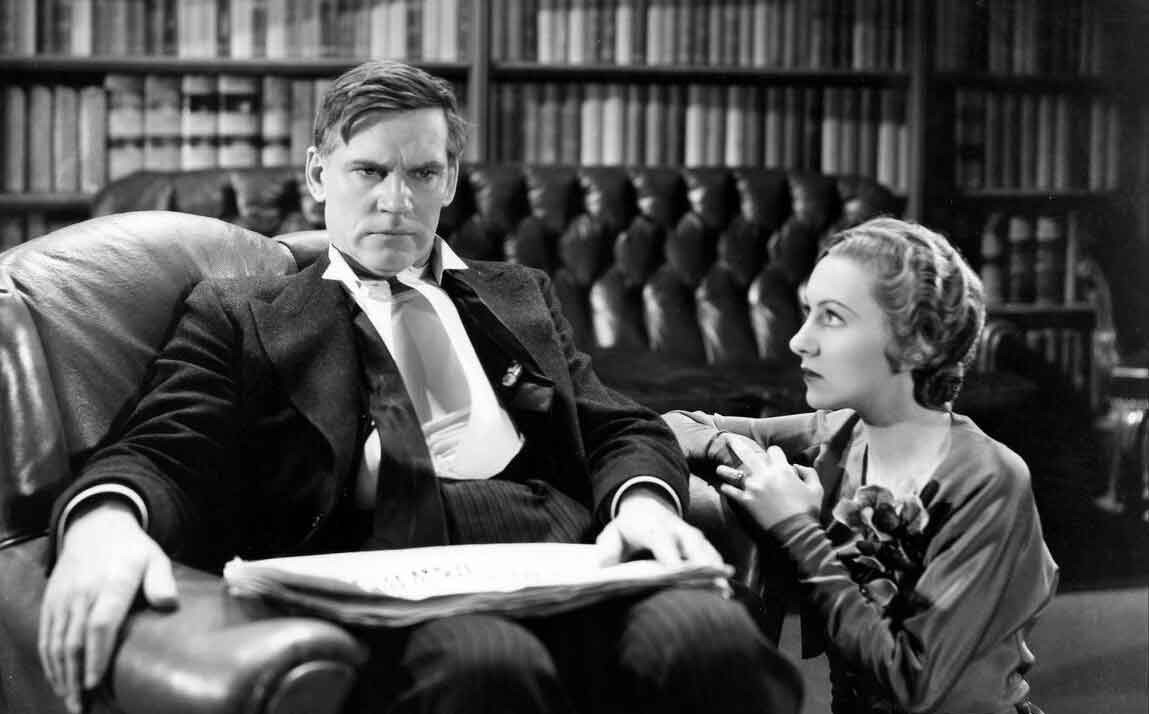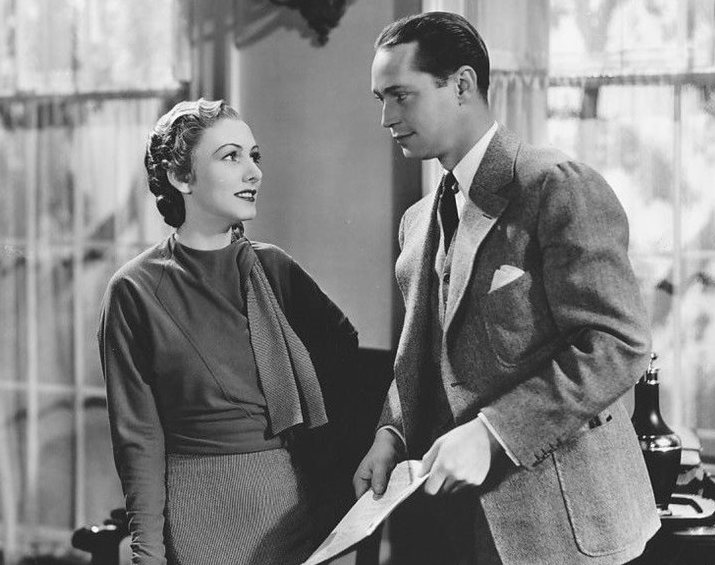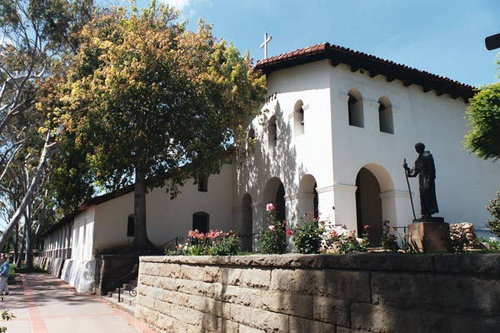SLO Film Fest: Franchot & Fascism
 Friday, March 15, 2019 at 12:26PM
Friday, March 15, 2019 at 12:26PM by Nathaniel R
 Walter Huston a fascist American president in "Gabriel Over the White House"
Walter Huston a fascist American president in "Gabriel Over the White House"
Those of us who live in big cities with dozens of theaters and access to films from around the world sometimes forget the need for communities of dedicated cinephiles elsewhere. Likeminded cinephiles are easy to find online and share obscure movie-watching with but IRL outside the biggest cities you often need a regional film festival to find them. Community, and not just of cinephiles, is what film festivals thrive on. The best regional festivals find ways to incorporate local groups and artists of multiple kinds. SLO Fest does that with local filmmakers of course and also local musicians like the Malibu Coast Silent Film Orchestra. But sometimes local groups sponsor specific festival selections.
For instance we were completely puzzled at the inclusion of a 1933 movie we'd never heard of in a festival that mostly centers around new films, docs, and discoveries, so of course we scheduled it. We arrived to Gabriel Over the White House completely curious. We knew only that Franchot Tone was in it (you know about our Franchot Tone problem. Ahem) and that is usually enough. And here's where the regional community feeling comes in...
It turns out the inclusion was sponsored by a group called Coastal Awakenings. Each year this group picks a theme to meditate on for a whole year through various curated events. Last year's theme was The Beats (Jack Kerouac et al) and this year's theme is "Facing Fascism". It's not just the resistance but the attempt to understand it. Why does the world keep falling for it? It pops up frequently in world history despite all the catastrophic results.
There's a reason this Warner Bros film is now an obscurity; it's an openly fascist American picture made not that many years before Americans went to war to oppose fascism. Though it's not a "good" film, by your typical measure, it is also worth seeing for the novelty value, and for how creepily modern it sometimes read. To introduce the picture they read two very opposing funny reviews from the time, one praising it while saying it might offend some "old fashioned Americans" (you know the ones who love democracy!) and another which guts it for its politics.
 Karen Morley and Franchot Tone, fall in love in Gabriel Over the White House (though she's initially his boss's mistress)
Karen Morley and Franchot Tone, fall in love in Gabriel Over the White House (though she's initially his boss's mistress)
Walter Huston plays the newly elected President Judd Hammond who is introduced as a typically useless swamp-ready politician; he's unconcerned with the well being of his constituents, and only out for himself and his "friends" and "the party". Sound familiar? His new secretary Beekman (Franchot Tone, yummy as ever) rolls his eyes a bit at someone so unfit for office who doesn't respect the typical ways of doing things. Still familiar! And here's where the film gets scary about mankind's love of fascism, a mistake we keep repeating. After a near-death accident the President wakes up from a coma completely changed (music cues and light clues suggested he is now visited by angels -- hence the title). He's ready to Make America Great Again! Numerous people mention that the president speaks "plainly" as if he's not an elitist but a man of the people. What follows is a pretty ballsy disturbing plotline in which the President basically becomes a dictator -- firing everyone who disagrees with him, shutting down Congress because they're in his way (they go willingly!), declaring a national emergency, reminding everyone that he has executive power to do whatever he wants, etc.
It's basically T***p's wet dream fantasy of what being Mr President should be like. The new president even has one of his chief enemies (conveniently also a "public enemy") assassinated by a firing squad. Beekman, now a true believer in his Dear Leader, is the one who yells "fire" and the scene was not a little chilling. What's most disturbing about the picture is that it's not presented as a cautionary tale about power run amok. Instead it's an open endorsement of this type of behavior, feeding into what is an unfortunately universal foolish desire for a 'benevolent dictator' the strong man (it's always a man) who will take charge of everyone and restore greatness. He'll rescue us from the complicated slow-processes of pesky "democracy" and "due process" and just do "what's right'. Gabriel Over the White House depicts this as not just a relief but a divine necessity to get the country back on track.
It was a lot to think about as we stumbled out of the theater into blinding sunshine!

We had an hour to kill before the next movie so we took a brief stroll through the grounds of the Mission (Locals tell us there's one every 100 miles along the coast and they all look the same) assuming it would bring some degree of piece and it did. But the next two documentaries took us right back to heady complicated contemporary issues facing us in the here and now...
More soon!



Reader Comments (2)
I saw this many years ago, on commercial TV so it was punctured with breaks for ads, so my memory of it is fuzzy. It sounds disturbingly disturbing considering the current situation.
Looking at its entry on IMDB it has a good cast in addition to Huston and Tone so if it shows up on TCM I'll have to give it another look.
Leading lady Karen Morley was a victim of the blacklist.
I've seen this flick, and it's downright terrifying... especially now. But it does a good job of showing how the overwhelming fear and despondency of the Depression allowed fascist strongmen to take control. (Though I'm not sure if the president's believing he's doing God's will is better or worse than his simply being a criminal meglomaniac.)
For an equally scary, but far more nuanced and detailed, treatment of how American democracy could have fallen in thirties, I highly recommend the 1935 novel "It Can't Happen Here" by Sinclair Lewis.
(Actually, I recommend all of his novels, which are excellent windows into America from the twenties through forties. Sinclair Lewis is nearly forgotten today, but he deserves to be right up there with the other great American novelists of the era: Fitzgerald, Hemingway, Steinbeck, Willa Cather, etc.)